Penis Augmentation in France
Search and Compare the Best Clinics and Doctors at the Lowest Prices for Penis Augmentation in France
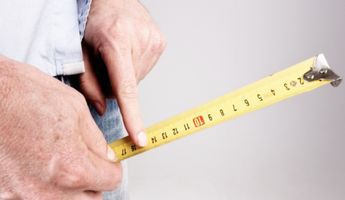
Find the best clinics for Penis Augmentation in France
No clinics available
Egypt offers the best prices Worldwide
Price: $ 500

- Home
- France
Compare Before & After Photos of _procedure_photos.phpPenis Augmentation

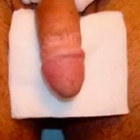
Front view
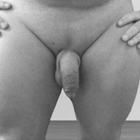
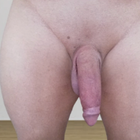
Front view
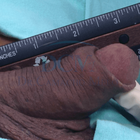
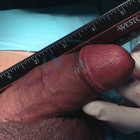
Half-side view
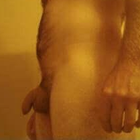
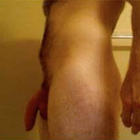
Full-side view
WHY US?
At Medijump, we're making medical easy. You can search, compare, discuss, and book your medical all in one place. We open the door to the best medical providers worldwide, saving you time and energy along the way, and it's all for FREE, no hidden fees, and no price markups guaranteed. So what are you waiting for?

Free

Best Price

Widest Selection

Risk-Free
What you need to know about Penis Augmentation in France
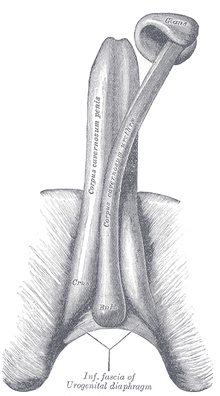
Also known as a Penis Enlargement, Penis Enhancement, Phalloplasty or the Penoplasty and involves any technique aimed to increase the size of the penis, where some procedures aim to increase total length, others may increase the shaft's girth. The Penile Implant is an alternative technique that is more common among those with erectile dysfunction. The procedure is performed under general anesthetic and can be completed in 45-60 minutes.
The most common procedure involves lengthening the flaccid penis by releasing the muscle at the Mons Pubis, but there is also the option for a fat transfer, which combined with liposuction, is particularly useful for increasing the girth. Note that these procedures aide in increasing the length of the flaccid penis only, the erect length remains the same.
To increase the length of the erect penis, a form of penile disassembly is required, where the head is detached and the extra tissue is grafted into the shaft - this technique takes longer and is more expensive. All techniques require two nights of hospitalization and a recovery time of 10-14 days in France.
What is the cost of Penis Augmentation in France?
The expense related to the Penis Augmentation in France can differ based on many factors. These encompass the particular details of the operation, the competency of the medical professional, and the amenities provided by the selected healthcare center.
Although being mindful about cost is logical, it's vital not to sacrifice the standard of treatment. A credible healthcare institution will be clear about the expenses, offering you an itemized elucidation. Additionally, it's beneficial to explore if your medical insurance provides any coverage for the operation or related care.
What does a Penis Augmentation Procedure Involve?
Before proceeding with the surgery, you will have an extensive consultation with your surgeon to determine whether the procedure is suitable for you. You will discuss your expectations and it is important to be realistic to avoid disappointment. You should also inform your surgeon about the reasons why you want to undergo the surgery. Your surgeon will get you to do a physical examination to find out if you have any medical conditions and to help your surgeon evaluate the best treatment option for your specific case.
During the surgery you will be given general anesthesia, meaning you will be asleep and will not feel anything. The most common types of penis augmentation surgery are:
- Penis girth surgery is aimed to increase the thickness of your penis in a flaccid and erect state. Your surgeon will perform a small liposuction procedure to harvest fat from the abdomen, thigh, or buttock. The fat is then purified with a system to improve the quality of the fat. The last step is distributing the fat along the shaft of the penis to thicken it. Some studies claim an increase in girth of around 1.4 cm to 4 cm.
- Penis length surgery can give the flaccid penis an average of 2 cm, but it cannot change the size of the erect penis. During the surgery, your surgeon will cut the ligament where the penis is attached to the pubic bone. Then, your surgeon will perform a skin graft at the base of the penis to allow for extra length.
-
Liposuction is a surgical procedure to remove fat from below the abdomen which can reveal up to 2 cm of the penis that had previously been buried. By removing excess fat around the pubic area, a partly buried penis can appear more prominent. This procedure works well with men who have a large tummy. However, if the man puts on weight again, the fat will return to the pubic area and may bury the penis again.
-
Penuma is a device inserted under your penis skin to make it longer and wider. It is crescent-shaped and made of medical-grade silicone. It comes in three sizes: large, extra-large, and extra-extra-large. It will be designed to fit your penis shape. Your surgeon will make an incision in your groin area just above the base of your penis to insert the Penuma. The device will stretch the penis skin and tissues to make your penis look and feel larger. If you are not already circumcised, you will need to do it before the procedure.
How Long Should I Stay in France for a Penis Augmentation Procedure?
In general, it takes around 45 minutes to an hour to complete a penis augmentation. You may go back to your hotel on the same day of the surgery after the effects of the anesthesia wears off. However, there are some cases where the patient will require a two nights stay at the hospital.
Plan to stay in France for at least 10 to 14 days. During your stay, it will allow for the initial recovery and you will attend follow-up checkups.
What's the Recovery Time for Penis Augmentation Procedures in France?
You will need to take some time off work after this surgery, normally one week if your job does not involve any physically demanding activity. If your job involves a lot of moving around, you can go back within 2 weeks.
Avoid any strenuous activity, including exercise for around six weeks. Do not have any sexual intercourse or masturbation for around four weeks. It may take around three to six months before you will see the completed result.
What sort of Aftercare is Required for Penis Augmentation Procedures in France?
Your surgeon will give you a set of instructions about post-operative care and you will need to follow the instructions. Pain and soreness following the surgery are normal and your surgeon will give you painkillers to control the pain. A surgical dressing will cover your penis, which will need changing at intervals.
You will need to keep the area clean, but avoid getting water on the area. Use a flannel or a sponge to clean the area. Your surgeon may ask you to massage your penis on a daily basis to prevent lumps from forming on the surface and to stop it from becoming lop-sided. Avoid heavy lifting and other strenuous activity and wait for a month before you resume any sexual activities.
What's the Success Rate of Penis Augmentation Procedures in France?
The success rate is high and the procedure can give the patient a significant confidence boost. Patients often cite the improvement of premature ejaculation (sexual stamina) and increased libido. Feeling and sensitivity are not affected and the patient is still able to ejaculate as normal, therefore the chances of conceiving are not impacted. A study found that 81% of patients who had Penuma rated their results high or very high.
For an animated display of how the penis augmentation procedure works with before and after images, watch this short video.
Are there Alternatives to Penis Augmentation Procedures in France?
The penile implant is an alternative technique, but it is more common among those with erectile dysfunction. Non-surgical alternatives to this surgery are pills, lotions, vacuum devices, penile extenders, and jelqing (stretching techniques). However, no study confirms the success of those procedures.
What Should You Expect Before and After the Procedure
Familiarizing yourself with the anticipation of the Penis Augmentation can substantially decrease stress and better equip you physically and emotionally. Before the process, you'll undertake an in-depth conversation with your medical expert, discussing the procedure, potential hazards, and projected results. They will mentor you on the essential preparatory steps, which might encompass advice on nutrition and lifestyle patterns. It's crucial to abide by these guidelines to set the best possible environment for a triumphant procedure and speedy recovery.
After the Penis Augmentation, it's ordinary to feel some level of discomfort, inflammation, or bruises, which are expected after-surgery responses and part of the natural recovery course. Your medicinal specialist will hand over comprehensive after-surgery care instructions, including medicines timings, relaxation, proper diet, and sleep positions. Complying entirely with these instructions can encourage a speedy recovery and lessen possible complications.
What are Potential Risks of Penis Augmentation?
Nonetheless, there are still risks and complications that you will need to be aware of.
- For penis length surgery, the cut ligament may not provide the support it originally did, which could lead to less satisfactory erections. In addition, it can also cause pain during sex.
- For girth surgery, some patients may experience scarring, disfigurement, infection, and lumpiness.
- Other complications include implant coming apart, and blood cloth.
Whilst the information presented here has been accurately sourced and verified by a medical professional for its accuracy, it is still advised to consult with your doctor before pursuing a medical treatment at one of the listed medical providers
No Time?
Tell us what you're looking for and we'll reachout to the top clinics all at once
Enquire Now

Popular Procedures in France
Prices Start From $95

Prices Start From $556

Prices Start From $1,795

Prices Start From $1,000

Prices Start From $322

Prices Start From $275

Recommended Medical Centers in France for procedures similar to Penis Augmentation

- Interpreter services
- Translation service
- Religious facilities
- Medical records transfer
- Medical travel insurance
- Health insurance coordination
- TV in the room
- Safe in the room
- Phone in the room
- Private rooms for patients available

- Interpreter services
- Translation service
- Religious facilities
- Medical records transfer
- Medical travel insurance
- Health insurance coordination
- TV in the room
- Safe in the room
- Phone in the room
- Private rooms for patients available

- Interpreter services
- Translation service
- Religious facilities
- Medical records transfer
- Medical travel insurance
- Health insurance coordination
- TV in the room
- Safe in the room
- Phone in the room
- Private rooms for patients available

- Interpreter services
- Translation service
- Religious facilities
- Medical records transfer
- Medical travel insurance
- Health insurance coordination
- TV in the room
- Safe in the room
- Phone in the room
- Private rooms for patients available

- Interpreter services
- Translation service
- Religious facilities
- Medical records transfer
- Medical travel insurance
- Health insurance coordination
- TV in the room
- Safe in the room
- Phone in the room
- Private rooms for patients available

- Interpreter services
- Translation service
- Religious facilities
- Medical records transfer
- Medical travel insurance
- Health insurance coordination
- TV in the room
- Safe in the room
- Phone in the room
- Private rooms for patients available

- Interpreter services
- Translation service
- Religious facilities
- Medical records transfer
- Medical travel insurance
- Health insurance coordination
- TV in the room
- Safe in the room
- Phone in the room
- Private rooms for patients available

- Interpreter services
- Translation service
- Religious facilities
- Medical records transfer
- Medical travel insurance
- Health insurance coordination
- TV in the room
- Safe in the room
- Phone in the room
- Private rooms for patients available

- Interpreter services
- Translation service
- Religious facilities
- Medical records transfer
- Medical travel insurance
- Health insurance coordination
- TV in the room
- Safe in the room
- Phone in the room
- Private rooms for patients available

- Interpreter services
- Translation service
- Religious facilities
- Medical records transfer
- Medical travel insurance
- Health insurance coordination
- TV in the room
- Safe in the room
- Phone in the room
- Private rooms for patients available
Penis Augmentation in and around France
About France
France, renowned for its architecture, art, cinema, cuisine, fashion, literature, music, and wine, with the most significant attraction being its glorious capital city, Paris - home to the famous Eifel Tower. With its small medical tourism industry, France sees far fewer medical tourists than its neighbors Germany and Spain, however, many travel each year for Penis Augmentation procedures among other popular procedures. Other than Paris, popular locations for private medical centers, include Bordeaux, Lyon, and Montpellier.
Popular Parts of France
France has welcomed more than 80 million visitors in the past few years. The country does have a lot to offer, from culture to iconic landscapes, making it an ideal place to spend a memorable holiday.
- Paris, the capital of France, is an international center of culture, fashion, art, and gastronomy. Hundreds of writers have written about their love of this city, and it is easy to see why. With thousands of years of history, the city is filled with iconic monuments. Some of the most famous and most visited landmarks are the Eiffel Tower, Arc de Triomphe, and Notre Dame. This stunning city is also known for its art nouveau cafes with pretty chairs lining the terrace and the beautiful banks of the Seine that are perfect for romantic walks.
- Bordeaux is known for its wine, lively restaurant scene, and the futuristic La Cité du Vin. Tourists can take a tour of a winery and taste some of the world’s best wines. Complete the wine tour by visiting La Cité du Vin, an ultra-modern cultural center that provides comprehensive information about wine production. Other than the wine, there are countless things that tourists can do in this city. Visit Place de la Victoire, a pretty square with amazing architecture, or visit Musée D’Aquitaine to see historical collections from all around the Aquitaine region.
- Lyon is the third-largest city in France and it is famous for its cuisine and historical landmarks. The city was an important area for silk production and had lots of trade with Italy and tourists can see the Italian influence in the city’s architecture. The city attracts travelers to come and visit its many museums such as the Museum of Fine Arts of Lyon, Museum of Miniatures, and Textile Museum. Tourists who love cinema will be delighted to explore the Lumiere Institute. Since Lyon is famous for its gastronomic scene, tourists should taste its famous specialties in a Bouchon.
- Nice is the second-largest tourist destination in France. Located on the Mediterranean coast, the city is brimming with stunning beaches, hilltop lookouts, and glamorous restaurants. Thanks to its Mediterranean climate, it is always filled with sun-seekers all year round. The city in the past also attracted many artists such as Henri Matisse, Marc Chagall, Pablo Picasso, and Pierre-Auguste Renoir. The city pays tribute to the artists in its top museums, the Musée Chagall and the Musée Matisse.
- Marseille is the second most populated city in France. Found by Greek sailors in 600 BC, it is one of the oldest cities in Europe. With a complex history, it is now a melting pot of different cultures. Discover the city by shopping in one of the colorful markets like the Noailles market. Do not forget to visit the Calanques to admire its beauty, wander around the interesting Mucem, get lost in Le Panier, and stroll around the scenic Corniche.
Weather and Climate in France
France generally enjoys mild summers and cold winters except in the Mediterranean area, which enjoys mild winters and hot summers. Spring starts in March and ends in April and the streets in spring are bursting with colors, making it a beautiful time to visit the country. It rains a lot during this season but the weather will start to brighten up in April. The temperature ranges between 7.5 °C in early March and 13.6 °C in May. June is when the summer starts and this season is a high season for tourism. The average temperature in summer is around 24 °C and the season experience little rainfall (around 11 days every month).
Autumn lasts from September to November. With an average of 12 °C, the temperature is still pretty mild to enjoy some outdoor activities. The temperature will slowly decrease in November when it reaches an average of 7.5 °C. Autumn is also the season of grape harvests, meaning it is a great time for wine tours. Winter is during the months of December to February and the weather can be really cold during this season with an average temperature of 5 °C. Despite the cold, December can be a delightful time to visit the country since it is one of the most festive months in France.
Getting Around in France
France has 34 airports, but the busiest are the airports in Paris: Paris Charles de Gaulle and Orly. Paris Charles de Gaulle Airport is the largest airport in France and the second largest in Europe. The airport serves domestic and international flights. It connects France with almost every country around the globe. It also serves budget airlines such as EasyJet and Norwegian Air Shuttle. While Charles de Gaulle airport serves as the main airport, Orly Airport serves as a secondary hub for domestic and overseas territories flights.
Traveling around France is easy. The wide range of airports let tourists travel around the country quickly by domestic flights. The country also has a great rail system since it is the creator of the earliest high-speed train system. The TGV (Train a Grande Vitesse) connects 150 cities in the country and Europe. It speeds up to 200 miles per hour. Other than the TGV, there are also Intercity trains, TER, and AutoTrain. The easiest way to buy train tickets is online. The prices vary widely but you will get good bargains if you book early. Before getting on the train, remember to validate your ticket in yellow machines known as compostage de billets.
Taxis can be found easily around France and you can hail a taxi from a taxi rank (station de taxi) outside railway stations, airports, or main areas in cities. You can also hail one directly from the street or by telephone. The taxis are metered and the base fare is around €4.10. If there are more than four passengers, there will be an extra fee of €2.50 and the driver can charge an extra €2 if you have a lot of luggage and Taxis are usually more expensive in Paris.
Tourist Visas in France
France is a member of the Schengen Agreement. Therefore, holders of ordinary passport from 62 countries including Australia, Malaysia, Singapore, and the United States do not need a visa to enter the country for short stays of up to 90 days. Other nationals not listed need to apply and obtain a visa before entering the country. It is advisable to always check at the nearest France embassy or consulate for a France visa.
Additional Information
- Local Currency: The official currency in France is the Euro (€). US$1 converts to €0.85.
- Money & Payments: ATMs (known as DAB - distributeurs automatiques de billets) are widely available in the country, particularly in airports, train stations, and street corners. Credit and debit cards are accepted almost everywhere, including shops, supermarkets, restaurants, and hotels. Tipping can sometimes be mandatory, usually around 10% in restaurants.
- Local Language: French is the official language. Most people in large cities will speak English, especially in hotels and tourist sites. But it is better to know some French.
- Local Culture and Religion: France has a diverse religion under secular principles. The major religion in the country is Christianity, but other religions such as Islam, Buddhism, and Judaism are freely practiced.
- Public Holidays: There are 11 official public holidays in France, including New Year’s Day, Easter Monday, Bastille Day, and Christmas Day.
Popular Searches
- Plastic Surgery in Thailand
- Dental Implants in Thailand
- Hair Transplant in Thailand
- Breast Augmentation Thailand
- Gastric Sleeve in Thailand
- Gender Reassignment Surgery in Thailand
- Laser Hair Removal in Bangkok
- Botox in Bangkok
- Dermatology in Bangkok
- Breast Augmentation in Bangkok
- Coolsculpting in Bangkok
- Veneers in Turkey
- Hair Transplant in Turkey
- Rhinoplasty in Turkey
- Stem Cell Therapy in Mexico
- Rhinoplasty in Mexico
- Liposuction in Mexico
- Coolsculpting in Tijuana
- Rhinoplasty in Korea
- Scar Removal in Korea
- Gastric Sleeve in Turkey
- Bone Marrow Transplant in India
- Invisalign in Malaysia
- Plastic Surgery in the Dominican Republic
- Tummy Tuck in the Dominican Republic
- Plastic and Cosmetic Surgery in Poland
- Rhinoplasty in Poland
- Hair Implant in Poland
- Dental Implants in Poland
- IVF in Turkey